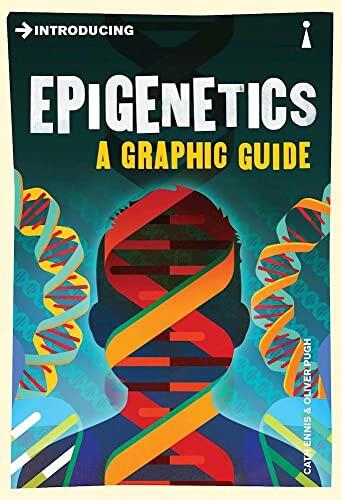
Introducing Epigenetics: A Graphic Guide
Brak ocen
Science & Technology
Manga
Graphic Novels
Format
Miękka okładka
Strony
176
Język
Angielski
Opublikowany
Apr 11, 2017
Wydawca
Icon Books
Wydanie
Illustrated
ISBN-10
1848318626
ISBN-13
9781848318625
Opis
Within the dynamic field of biology, epigenetics emerges as a captivating area of research that explores the intricate mechanisms influencing gene expression beyond the DNA sequence. Cath Ennis brings this complex subject to life, guiding readers through the fundamental concepts and groundbreaking discoveries shaping our understanding of heredity and environmental impact. With a vibrant graphic approach, the narrative becomes accessible to both novices and seasoned enthusiasts.
Throughout the pages, readers will encounter illustrations that simplify and enliven the scientific principles underlying epigenetics. From the role of epigenetic markers in human health to their implications in evolution, the book illustrates how these factors can alter an organism's traits without changing the genetic code. This fresh perspective not only demystifies sophisticated ideas but also highlights the interplay between genetics and the environment.
Ennis unpacks pivotal studies and real-world applications, demonstrating how epigenetics could revolutionize fields such as medicine and agriculture. By bridging the gap between complex science and everyday understanding, the book invites contemplation on the ethical implications of manipulating genes and highlights the fascinating potential of epigenetic research.
As readers delve deeper, they will find themselves encouraged to ponder the ways in which life experiences can leave lasting marks on biological inheritance. This exploration of epigenetics invites curiosity, inviting individuals to reflect on the remarkable connections between their environment and their genetic legacy.
Throughout the pages, readers will encounter illustrations that simplify and enliven the scientific principles underlying epigenetics. From the role of epigenetic markers in human health to their implications in evolution, the book illustrates how these factors can alter an organism's traits without changing the genetic code. This fresh perspective not only demystifies sophisticated ideas but also highlights the interplay between genetics and the environment.
Ennis unpacks pivotal studies and real-world applications, demonstrating how epigenetics could revolutionize fields such as medicine and agriculture. By bridging the gap between complex science and everyday understanding, the book invites contemplation on the ethical implications of manipulating genes and highlights the fascinating potential of epigenetic research.
As readers delve deeper, they will find themselves encouraged to ponder the ways in which life experiences can leave lasting marks on biological inheritance. This exploration of epigenetics invites curiosity, inviting individuals to reflect on the remarkable connections between their environment and their genetic legacy.
Recenzje
Nie ma jeszcze recenzji
Bądź pierwszy, aby zrecenzować tę książkę i podziel się swoimi przemyśleniami
Dodaj pierwszą recenzjęDziennik czytania
Nie znaleziono dzienników czytania
Zacznij śledzić swój postęp w czytaniu, aby zobaczyć logi tutaj
Dodaj swój pierwszy dziennik czytaniaNotatki
Dziennik transakcji
Nie znaleziono dzienników transakcji
Zacznij śledzić swoje transakcje książkowe, aby zobaczyć logi tutaj
Dodaj swój pierwszy dziennik transakcji